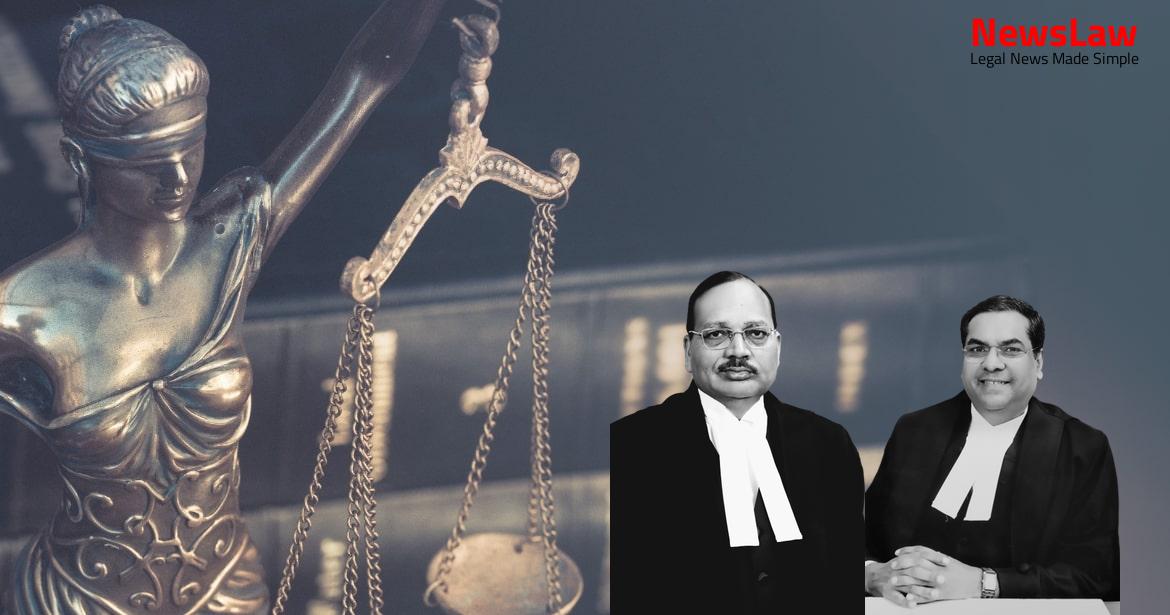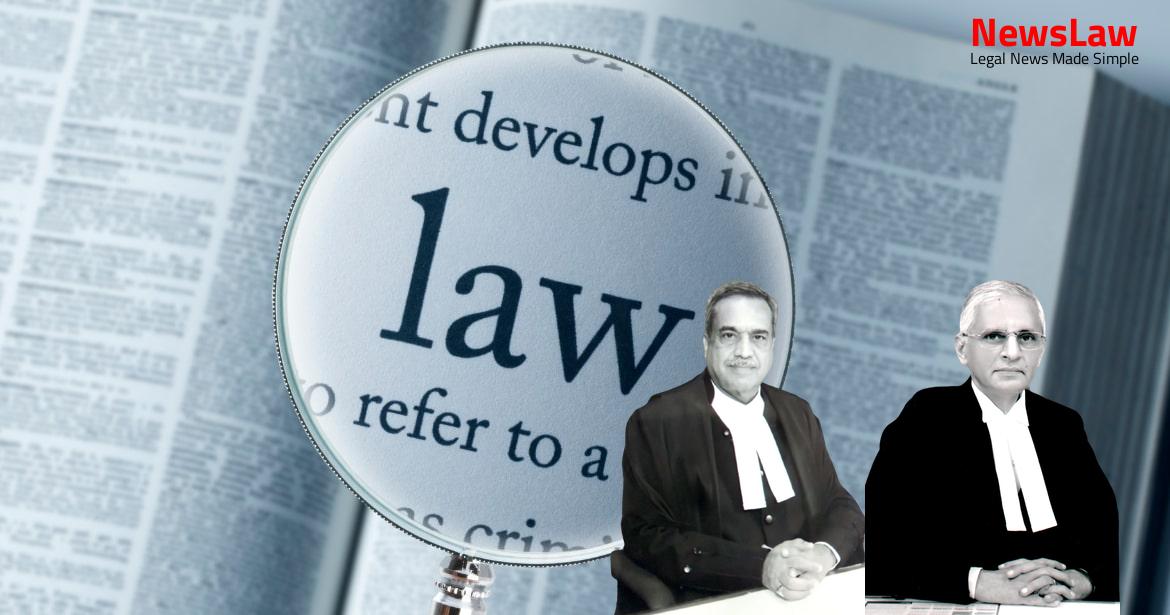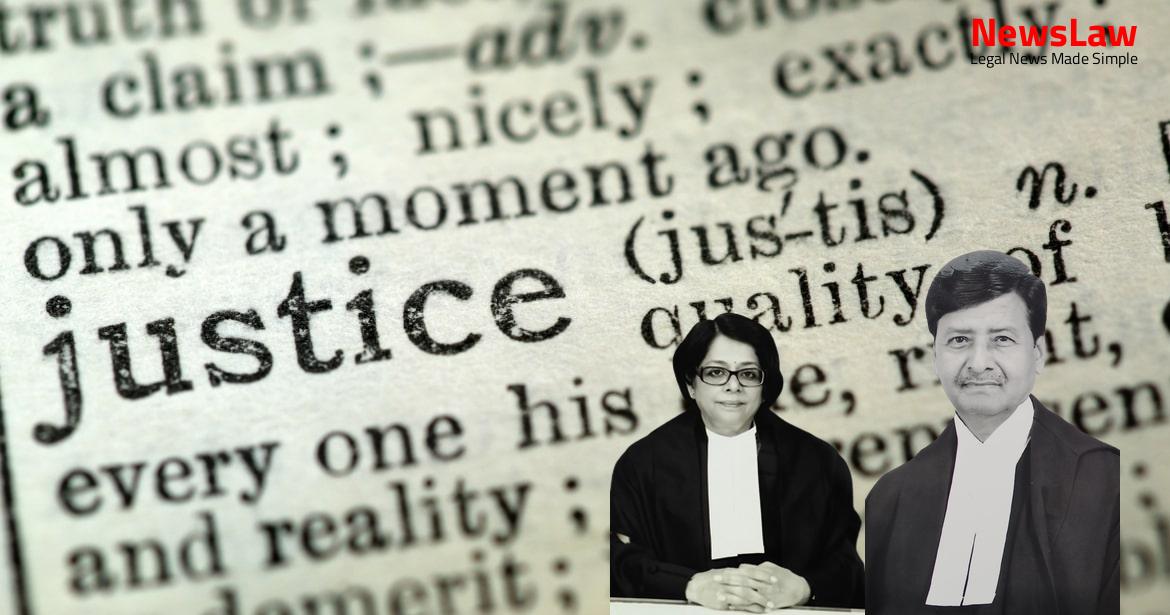In a significant legal battle, the Supreme Court of India has addressed the pay scale dispute that arose concerning government employees. The case involved a conflict over pay revisions and the reduction of compensation for 52 categories in 20 departments. The judgement brings clarity and resolution to the matter, ensuring fairness and justice for all parties involved.
Facts
- The Official Committee recommended pay-scale revisions based on existing scales of pay, accepted by the State Government through GO No.234 on 01.06.2009.
- The PGRC heard representations from various associations of employees/individuals and submitted recommendations to the State Government after hearings on specific dates.
- A One Man Commission, headed by Principal Secretary Rajiv Ranjan, was appointed to rectify pay anomalies resulting from the revised pay-scales implementation post GO No.234.
- GO No.312 dated 26.08.2010 revised scales of pay for certain categories in the Public Works Department based on recommendations from the One Man Commission.
- Subsequently, the State Government accepted recommendations of the One Man Commission through GO Nos.254 to 340 (86 GOs), implementing revisions in scales of pay with effect from specific dates.
- The High Court disposed of writ petitions challenging GO No.242 dated 22.07.2013 in Writ Appeal No.504 of 2012 and related matters with a judgment on 27.02.2014.
- The State Government issued GO No.71 dated 26.02.2011 scaling down benefits granted earlier without notice or hearing.
- The Pay Grievance Redressal Cell was headed by Thiru R. Thiyagrajan to address grievances of affected employees.
- Writ petitions challenging GO No.71 were dismissed by a Single Judge but later challenged in Writ Appeals.
- The Single Judge directed the State Government to re-constitute the PGRC due to the absence of Thiru R. Thiyagrajan.
- Assistant Engineers’ pay scale was recommended to be brought down to Pay Band-2 from Pay Band-3 for parity with similar Central Public Works Department posts.
- 52 categories of posts in various departments were downgraded to lower pay-scales.
- Excess payments made to employees were not to be recovered despite the change in pay scales.
- The Committee recommended placing Assistant Engineers in Pay Band-2 with a Grade Pay of Rs.5100 for alignment with Central Public Works Department positions.
- There was a disparity in pay scales for different categories of employees within the same grade, leading to recommendations for uniformity.
- The Committee emphasized the need for maintaining local pay relativities and recommended revised pay scales for various posts in alignment with central government scales.
Arguments
- The One-Man Committee and the PGRC appointed by the Government consists only of Government Officers.
- They have already decided to reduce the pay scale of 52 categories in 20 departments, including pensioners and family pensioners.
- It is not appropriate to allow the Government to reconsider the issue based solely on the recommendations of Government officials.
- The Government Employees and their Associations argued that the State Government, after accepting recommendations and providing benefits, could not lower pay scales.
- They pointed out that having already implemented the One Man Commission’s recommendations, it would be unjust to reduce the compensation for the concerned employees.
- The counsel emphasized that a decision to decrease pay scales would contradict the actions taken by the State Government based on the Commission’s findings.
- The argument was centered on the idea that it is not fair or equitable for the State Government to backtrack on the improvements made in terms of pay and benefits for the employees.
Also Read: CRPF Act: Validity of Rule 27 for Compulsory Retirement – Case of Head Constable vs. CRPF
Analysis
- The Central Government appointed a retired Judge of the Hon’ble Supreme Court to head the V Central Pay Commission.
- Recommendations made by Central Pay Commission for pay-scales of various posts.
- Various recommendations accepted by the Government through GO No.234.
- Anomalies found in pay scales for Assistant Engineers which led to formation of the PGRC.
- PGRC’s recommendations to address anomalies and legal issues regarding pay scales.
- Government’s decision to constitute a Pay Grievance Redressal Committee headed by a retired Judge.
- Specific directions given for the constitution and functioning of the Pay Grievance Redressal Committee.
- Consideration of remuneration and expenses for the Committee’s effective functioning.
- Courts should not disturb the recommendations of pay scales in a particular class of service to avoid cascading effects and multifarious litigation.
- Prescription of pay scales for specific posts is a complex exercise requiring assessment of duties, responsibilities, and nature of work performed.
- Posts with the same name may not be identical in all aspects, and need expert assessment by bodies like the employer or Pay Commission.
- Fitment Committee in this case has recommended wholesale revision of pay scales in Bihar, and granting higher pay scale to one class of service would disrupt the balance and affect other services, leading to financial difficulties for the State.
- The observations in the order were made to consider the correctness of the State Government’s decision in constituting the PGRC.
- The observations were not intended to reflect on the merits of the matter.
- The focus was on the process of constituting the PGRC and not the actual substance of the case.
Also Read: DAMEPL vs. DMRC: Curative Petition and Arbitral Award Restoration
Decision
- The Division Bench’s Direction No. (ix) is accepted without any changes.
- The Pay Grievance Redressal Committee (PGRC) is instructed to complete the entire process within four months from the current date.
- The State Government is required to form the PGRC within a week from today and provide appropriate office space and staff within another week.
- Representations must be filed by all concerned individuals/associations within two weeks of the PGRC’s formation, beyond which they may not be accepted by the PGRC.
- Any financial benefits already enjoyed by affected employees will not be recovered irrespective of the PGRC’s decision.
- Affected categories cannot switch to 7 Central Pay Commission scales until a final decision is reached.
- Direction No. (i) is modified to appoint Mr. Justice D. Murugesan as Chairman of the PGRC instead of Mr. Justice A.S. Venkatachalamoorthy.
- The Chairman may select two experts to join the PGRC, with their honorarium to be determined by the Chairman.
- Direction Nos. (iii), (v), (vi), and (vii) issued by the Division Bench remain unchanged.
- The Chairman’s honorarium is set at Rs.3.5 lakhs per month instead of Rs.1.5 lakhs per month.
- All issues related to the 6 Central Pay Commission recommendations are to be resolved promptly.
Case Title: TAMILNADU RURAL DEVELOPMENT ENGINEERS AND ASSISTANT ENGINEERS ASSOCIATION Vs. GOVERNMENT OF TAMILNADU AND OTHERS
Case Number: C.A. No.-010029-010029 / 2017



